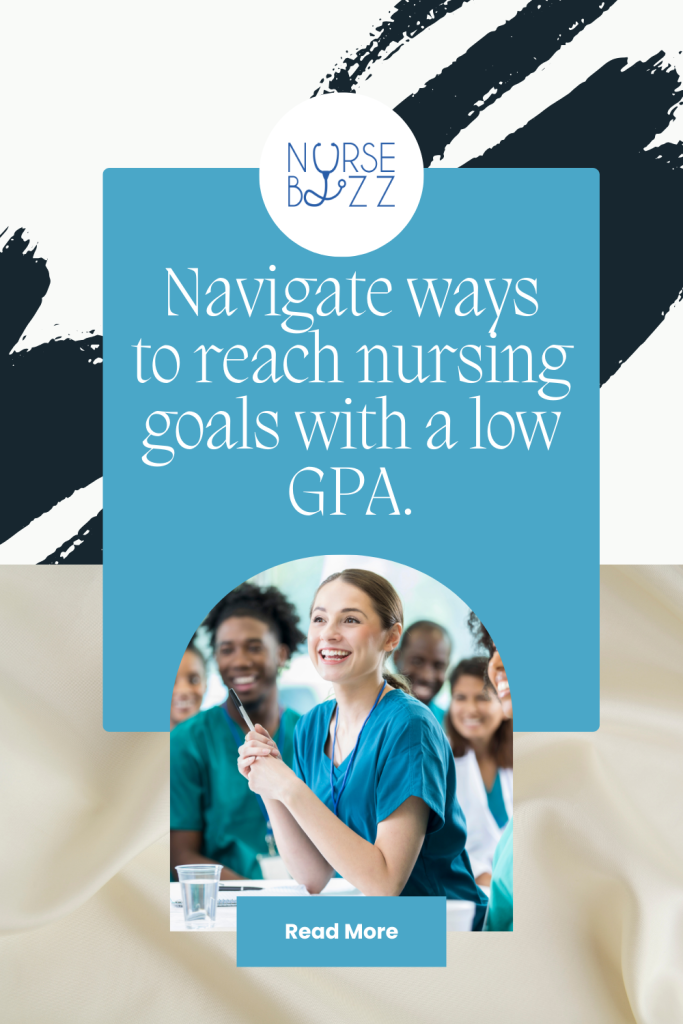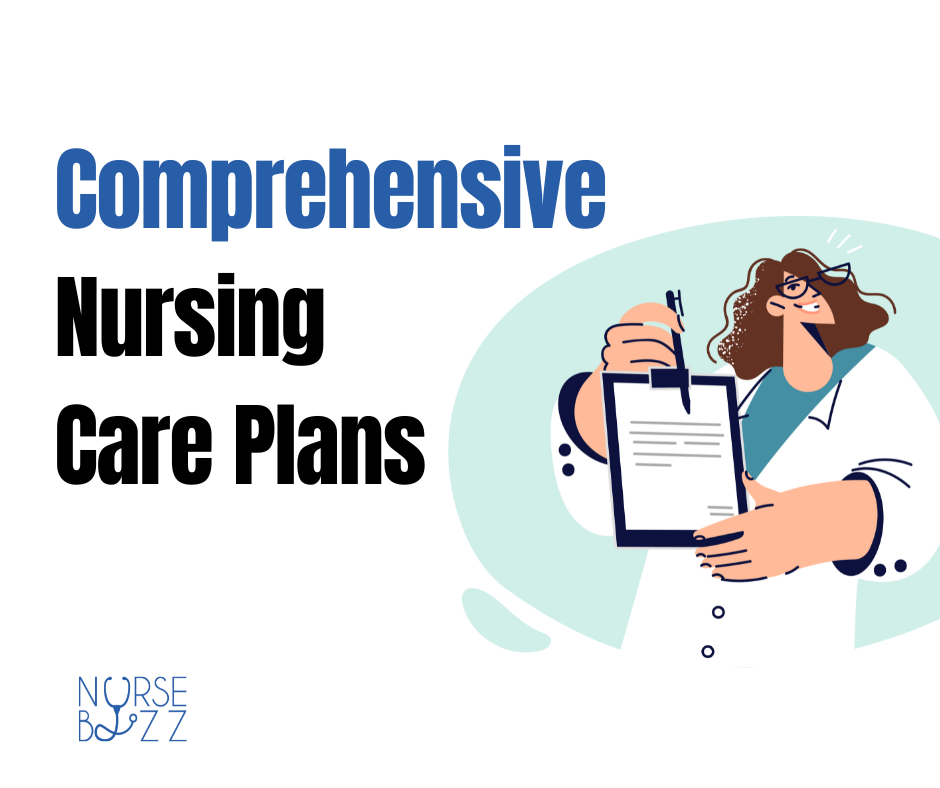Discover the pathways, tips, and strategies to pursue a nursing career even if you have bad grades.
As a nurse with bad grades, you may be wondering if it’s still possible to pursue your dream of entering this rewarding and noble career. Is it still possible to pursue your dream of becoming a nurse? The answer is yes! This article will explore the pathways and strategies to help you achieve your nursing goals, even with a low GPA. Let’s get started.
- 1. Research the Acceptable GPA in Nursing School
- 2. Apply to Multiple Schools
- 3. Consider ADN or LPN Programs
- 4. Re-Take Classes at a Community College
- 5. Seek Guidance from a Counselor
- 6. Craft an Exceptional Personal Statement
- 6. Take Advantage of Volunteering and Relevant Experience
- 6. Challenges and Considerations
- 6. Conclusion
- 6. Frequently Asked Questions
1. Research the Acceptable GPA in Nursing School
One of the first steps in pursuing a nursing career, especially if you’re dealing with a low GPA, is to research the GPA requirements for nursing programs thoroughly. While many nursing schools have minimum GPA standards, it’s important to note that there is often some degree of flexibility in their admissions process.

Here’s what you need to consider:
- Minimum GPA Standards: Nursing programs often have a minimum GPA requirement, typically ranging from 2.5 to 3.0 on a 4.0 scale. Standards may vary between schools, and some institutions may accept lower GPAs for candidates with exceptional qualities or relevant experience. Schools with flexible admission policies may sometimes consider applicants with a low GPA in nursing if they demonstrate compelling attributes.
- Holistic Admissions: Many nursing schools utilize a holistic approach to admissions. In addition to GPA, they consider other factors such as your statement, letters of recommendation, volunteer or work experience in healthcare, and extracurricular activities. This means that a slightly lower GPA for a nurse with bad grades might be offset by solid performance in these other areas, enhancing your overall candidacy.
- Transparency: Contact the admissions offices of your chosen nursing schools to understand their GPA requirements and application criteria. Some schools openly share their standards, helping you plan your application effectively.
- Alternative Routes: Consider alternative routes. If your GPA falls short, explore options like Associate Degree in Nursing (ADN) or Licensed Practical Nurse (LPN) programs. These pathways often have lower academic requirements and can lead to more advanced nursing roles.
2. Apply to Multiple Schools
One effective strategy for aspiring nurses with bad grades is to apply to multiple nursing schools. By diversifying your options and submitting applications to several institutions, you can significantly increase your chances of being accepted into a nursing program. Here’s why this approach is beneficial:
- Diverse Admission Standards: Nursing schools have varying admission requirements. While some demand higher GPAs, others consider factors like personal statements, recommendations, and healthcare experience. This adaptability accommodates aspiring nurses with lower grades, enabling them to find programs that value potential and commitment.
- Gain a Competitive Edge: Applying to multiple schools grants a competitive advantage. Nursing programs can be highly competitive with limited seats. Applying broadly increases your chances of securing a spot, even if your GPA falls below some institutions’ standards.
- Seek the Right Fit: Each nursing program offers a unique curriculum and focus. Applying to multiple schools enhances your chances of finding a program that aligns with your academic history and career goals. Consider factors like location, specialization, and program duration.
- Perseverance Pays Off: Don’t let rejection discourage you. It may take multiple application cycles to secure admission. Persistence and continuous effort can lead to success in your nursing journey.
- Manage Finances: Applying to multiple schools can incur costs such as application fees. Budget for these expenses and explore available fee waivers or financial aid options.
3. Consider ADN or LPN Programs

If you’re facing the challenge of a low GPA and are concerned about gaining admission to a traditional four-year nursing program, Associate Degree in Nursing (ADN) or Licensed Practical Nurse (LPN) programs present a valuable alternative. These programs have distinct advantages and can serve as a solid foundation for your nursing career:
- Lower Academic Requirements: ADN and LPN programs often have lower academic requirements than traditional Bachelor of Science in Nursing (BSN) programs. This means that you may find it easier to meet the GPA standards for admission.
- Stepping Stones: ADN programs typically take two years to complete, while LPN programs may be shorter. Once you’ve completed these programs, you can gain entry-level nursing positions. This can be an opportunity to accumulate practical experience, which is particularly beneficial if you’re dealing with a low GPA in nursing, and it provides a chance to improve your academic record for future educational pursuits.
- Cost-Effective: ADN and LPN programs are often more cost-effective than four-year nursing programs, making them an attractive choice for individuals who want to minimize educational expenses.
- Pathways to Further Education: Completing an ADN program doesn’t mean you can’t pursue a BSN or higher education later. Many nursing schools offer bridge programs that allow ADN- or LPN-educated nurses to continue their education and earn higher degrees.
- Work While You Learn: LPN programs, in particular, often provide the flexibility to work while you learn, making them an excellent option for low GPA nurses. This flexibility can be precious if you need to support yourself while pursuing your nursing education.
4. Re-Take Classes at a Community College
Re-taking courses at a community college is a strategic move for those nursing students who’ve encountered challenges with their GPA. This approach offers several advantages and can significantly improve your academic standing:
- Grade Improvement: By re-taking specific classes at a community college, you, as a nurse with bad grades, can improve your grades in those subjects. This can help raise your overall GPA, making you a more competitive applicant for nursing programs.
- Cost-Efficiency: Community colleges are often more affordable than traditional four-year institutions. Re-taking courses can be a cost-effective means of boosting your academic record without incurring significant debt, making it a practical choice for low GPA nurses aiming to improve their qualifications.
- Flexible Scheduling: Many community colleges offer flexible class schedules, including evening and online options. This flexibility can accommodate students with work or other commitments, making it easier to focus on academics.
- Demonstrating Commitment: Nursing programs value applicants who commit to academic improvement. Re-taking classes signal your dedication to enhancing your knowledge and skills, which can positively impact your application, especially when striving to overcome the challenges associated with a low GPA in nursing school.
Read About: Accelerated Nursing Programs: Faster Path to a Nursing Degree
5. Seek Guidance from a Counselor

Navigating the challenges of a low GPA and working toward a nursing career can be daunting, but academic counselors can be your invaluable allies during this process. Here’s why seeking guidance from a counselor is a crucial step:
- Course Selection: Academic counselors deeply understand course requirements and can help you select classes that align with your academic strengths and goals. They can also provide guidance on choosing courses that may allow you to demonstrate your commitment to improving your academic record.
- Study Strategies: Counselors can assist you in developing effective study strategies. They can recommend study methods tailored to your learning style, helping you to absorb and retain information more efficiently.
- Time Management: Managing your time effectively is critical, especially if you’re re-taking courses or juggling multiple responsibilities, which can be especially challenging for those with a low GPA in nursing. Counselors can provide insights into time management techniques that can help you balance your academic and personal life.
- Emotional Support: Dealing with academic setbacks and the pressure of pursuing a nursing career, especially for low GPA nurses, can be emotionally challenging. Counselors are equipped to provide emotional support, helping you maintain your mental and emotional well-being throughout the journey.
- Career Guidance: Counselors can offer career guidance, providing information on different nursing paths and specializations, especially for individuals aspiring to become a nurse with bad grades. They can help you explore the various opportunities within the nursing field and help you align your goals with the best-fit nursing program.
- Advocacy: In some cases, counselors can advocate on your behalf. If you have a documented learning disability or faced exceptional circumstances that contributed to your low GPA, they may assist you in communicating this to admissions offices.
6. Craft an Exceptional Personal Statement
Your personal statement is your chance to distinguish yourself as an applicant and address any academic setbacks you’ve faced due to a low GPA. Here’s how to create a compelling personal statement that can significantly impact your application:
- Honest Self-Reflection: Begin by honestly reflecting on your academic journey, including the challenges that led to your low GPA in nursing. Acknowledge these setbacks, and identify the factors that contributed to your academic performance. While you should be transparent about your challenges, it’s equally important to convey a sense of personal growth and determination.
- Explain the ‘Why’: Use your personal statement to explain why you’re passionate about nursing and why you’re committed to overcoming your academic difficulties. Admissions committees want to see that you have a genuine interest in the field and a strong desire to succeed.
- Highlight Strengths: While addressing your setbacks is essential, don’t forget to highlight your strengths. Share your accomplishments, relevant experiences, and any extracurricular activities that demonstrate your dedication to the nursing profession.
- Showcase Growth: Describe the steps you’ve taken to improve your academic performance. Discuss the courses you’ve retaken, study strategies you’ve implemented, and any personal achievements that signify your resilience and growth. This proactive approach is vital not only for your academic journey but also for your future success as a nurse, especially in a field where low GPA nurses can thrive with determination and commitment.
- Connect to the School’s Values: Tailor your personal statement to align with the values and mission of the nursing program you’re applying to. Show that you’ve done your research and that you share their commitment to patient care and healthcare excellence.
- Seek Feedback: Before finalizing your personal statement, seek feedback from professors, mentors, or academic advisors. They can provide valuable insights and help you refine your message.
7. Take Advantage of Volunteering and Relevant Experience

Gaining relevant healthcare experience through volunteering and internships is not only a powerful addition to your application but also a way to demonstrate your unwavering commitment to the nursing profession. Here’s how to make the most of this opportunity:
- Diverse Experience: Volunteering and internships in healthcare settings provide you with a firsthand look into the world of nursing, offering valuable insights and practical experiences, even for those nurse with bad grades. Seek opportunities in hospitals, clinics, nursing homes, or community health organizations to explore the diversity of healthcare and nursing practices.
- Networking: Building connections with healthcare professionals and mentors during your volunteer or internship experiences can be invaluable. These connections can provide you with guidance, recommendation letters, and insights into the field.
- Resume Building: Including your volunteer and internship experiences on your resume can help you stand out as an applicant. It demonstrates your dedication to the field, regardless of any past academic setbacks, such as a low GPA in nursing school. These experiences underscore your commitment to nursing and your proactive approach to gaining practical knowledge and skills in the healthcare sector.
- Personal Statement Impact: When crafting your personal statement, highlight specific experiences and lessons you’ve gained through volunteering and internships. Explain how these experiences have solidified your commitment to nursing and your determination to overcome academic challenges.
- Interview Talking Points: During interviews with nursing programs, you can draw on your real-life experiences to illustrate your passion for the field and your ability to succeed as a nursing student.
8. Challenges and Considerations
Entering the nursing profession with a low GPA presents unique challenges and considerations. It’s essential to understand the potential obstacles and how they may impact your nursing career:
- Limited Program Options: Some nursing programs have stringent GPA requirements, which can limit your choices. This may necessitate considering alternative paths or reevaluating your desired specialization. For those with a low GPA in nursing, exploring ADN or LPN programs might be a practical step, as these pathways often have more lenient academic requirements.
- Career Opportunities: A low GPA may affect your career opportunities. While it doesn’t necessarily prevent you from becoming a nurse, it can influence your options for specialization and job opportunities. Employers may view a low GPA as a measure of dedication and readiness for the profession.
- Persistence and Dedication: Overcoming a low GPA requires persistence and dedication. It’s important to demonstrate your commitment to the nursing field through academic improvement, relevant experience, and a strong personal statement.
- Emotional Resilience: Facing academic setbacks and working to overcome them can be emotionally challenging. Building emotional resilience is crucial for managing the pressures of nursing school and a nursing career.
9. Conclusion
Becoming a nurse is a fulfilling journey, and even as a nurse with bad grades, it’s possible to reach your goals. By following the strategies outlined in this article and staying persistent, you can overcome academic setbacks and make your dream of becoming a nurse a reality. With dedication and the right approach, a low GPA should not be a barrier to your nursing aspirations.

10. Frequently Asked Questions
Q1: What is the lowest passing grade in nursing school?
A: Typically, the minimum passing grade in nursing school is a C. However, achieving only the minimum passing grade may not be sufficient for success in the competitive nursing field. Many programs and employers prefer higher grades.
Q2: What is considered a good grade for nursing?
A: Nursing programs usually require a minimum GPA of 3.0 or higher. It’s advisable to aim for a GPA that exceeds the minimum requirement to enhance your candidacy and demonstrate commitment to excellence.
Q3: Which nursing class is often the most challenging?
A: While perceptions of difficulty vary, pharmacology and anatomy are frequently cited as challenging nursing school subjects due to their complex content. Success in these courses requires dedicated study and a deep understanding of drug interactions, human anatomy, and physiology.




